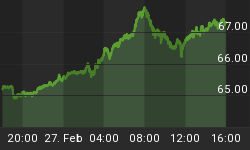Over $1 billion has vanished from the Saudi stock market, as foreign institutional investors wash their hands of what is rapidly becoming equated with blood money.
On Sunday, the Kingdom said the killing of Khashoggi at the Saudi consulate in Istanbul was “huge and grave mistake”, but Crown Prince Mohammed bin Salman had not been aware.
For the week ending October 18, foreign institutional investors sold $1.07 billion in Saudi stocks, Reuters reports, as the market prices in a major change in U.S.-Saudi relations that not even 9/11 could shake.
Reuters reported that Saudi individual investors sold a net 3.4 billion riyals worth of stocks during the week, while Saudi institutions bought a net 7.8 billion riyals worth of stock for the same period and other Gulf investors were among the net sell-off club. In other words, state-backed Saudi funds kept the market propped up.
According to Bloomberg, the Saudis saw the biggest outflow of any emerging-market-buying ETFs last week, but it stock gauge still managed to post a 1.6-percent increase for that time period. That fact has led to speculation that the government is propping up shares, though Bloomberg has been unable to independently confirm this.
Saudi Basic Industries Corp—the top petrochemical producer--fell nearly 1 percent, while Al Rajhi Banking & Investment Corp saw 1.9 percent shaved up its top and National Commercial Bank lost 2.3 percent. Related: America Has A Milk Problem
It’s horrible timing for that much-talked-about Aramco IPO that was going to be floated at home, and also ahead of major index plans to upgrade Saudi Arabia to “emerging market” status next year. That would have likely drawn in billions of dollars in investment.
"There is still a layer of investor uncertainty around the reaction from different world leaders that is encouraging the mixed performance in the Saudi Index, and it wouldn't be a surprise if this momentum continues to show the same form until the conclusion of the upcoming Saudi Investment Summit," the Khaleej Times quoted Jameel Ahmad, global head of currency strategy and market research at FXTM, as saying.
Speaking to Reuters, Jaap Meijer, head of equity research at Arqaam Capital, said “the market started to price in a fundamentally different relationship between Saudi Arabia and the U.S.”
However, Meijer also noted the belief that they will remain close allies for geopolitical reasons and, of course, oil supply.
Related: Stocks Mixed On Italy Turmoil, China Rebound
U.S. stocks declined last week, too, over the future of the U.S.-Saudi relationship when U.S. Treasury Secretary Steven Mnuchin pulled out of the Crown Prince’s “Davos in the Desert” conference, coupled with investor concerns about corporate earnings set to come in this week.
Investors are already less than enamored with Saudi Arabia’s lack of transparency and the difficulty in obtaining basic information on companies. Things improved somewhat in 2015, when the Kingdom started allowing foreign investors trade stocks directly and then own up to 49 percent of listed securities. An upgrade to “emerging market” would have added another layer of confidence for foreign investors.
More risk following the murder of Khashoggi, coupled with this prevailing lack of transparency, makes for wilder volatility.
By Charles Benavidez for Safehaven.com
More Top Reads From Safehaven.com:
















